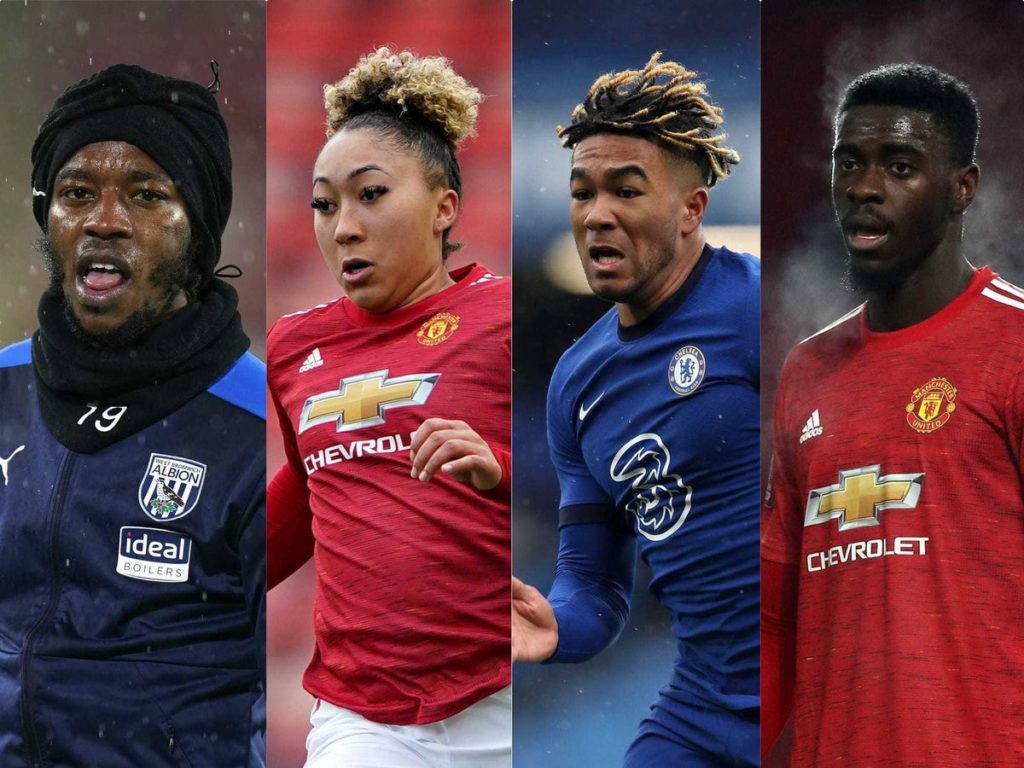
Facebook Content Policy Manager, Fadzai Madzingira believes that racism in football is bigger than abusive messages sent on social media as Instagram have announced new measures to tackle online hate on its platform.
Racist social media abuse has been sent to several high-profile footballers in both the men’s and women’s game, whilst Premier League referee Mike Dean suffered death threats after awarding a controversial red card to West Ham midfielder Tomáš Souček in a goalless draw with Fulham on Saturday night.
Removal of accounts in order to prevent abusive messages posted on the platform are just one of the measures Facebook-owned Instagram will follow whilst developing new tools to help reduce the abuse people see.
In an interview with Sky Sports News, Madzingira said, “The changes we have announced today are part of a larger strategy of our commitment to more accountability and commitment to stopping this hate. They go with previous features which we have rolled out. It’s all a small part in stopping this abuse,”
“But racism in football is bigger than what happens on social media platforms. There are conversations that need to happen offline as well if we are all going to take responsibility for stopping this hate.”
The British government revealed that they will be making social networks like Facebook and Instagram more accountable for malicious content posted on their platforms, which may include hefty fines.
Digital Secretary Oliver Dowden said as quoted by Sky Sports: “For too long the world’s most popular and powerful social media companies have failed to tackle the stream of horrific racist attacks on their platforms.
“I welcome Instagram’s improved policies but racist abuse is still a fact of life for too many people and more has to be done across the board to stamp it out.
“We’re introducing a new age of accountability for these companies through our upcoming Online Safety Bill and this could see huge fines for firms which fail to clearly and transparently protect their users.”
Madzingira urged the government, Facebook and Instagram to collaborate closely together as work needs to be done on both sides to tackle this ever-present issue.
“We welcome conversations with governments and other stakeholders both on and offline. We have teams inside the company that are well engaged within these discussions, whether that is the Online Harms Bill right through to initiatives on the ground and how we can encourage people to report this behaviour. We encourage conversations with governments.”
The word “narcistic” came to Madzingira’s mind when discussing whether social media companies could solely resolve online racist abuse, stating that Instagram’s new measures cannot guarantee anything. However, she believes that progress can be ensured to help the victims’ experiences on its platform as commitment to holding people accountable and engaging in wider discussions is improving.
Madzingira discussed this further with Sky Sports saying, “It would be inappropriate for me to guarantee these new measures will make a difference. Racism on social media is very much mirroring what is happening offline. As much as we play our part to hold people more accountable for their abuse, we also know this a small part of a larger conversation. How do we continue to talk about racism in sport, in our communities?
“A broader conversation, whether it is with non-government organisations (NGOs), football authorities, governments, we need to stop this behaviour. We are not narcissistic enough to believe that a social media platform can stop racism. What we want to do is at least ensure that Instagram is a safe space and people do not have to deal with abuse like some people have been experiencing lately.”
Social media companies have been recommended that forms of identification should be required when registering accounts in order to prevent more anonymous abusive accounts being created, or abusive content being shared by accounts with fake names.
Madzingira believes that government-issued identification could be problematic, particularly those from ethnic minority backgrounds who want to engage with the platform but may not have the relevant documentation.
“I totally understand the frustration that comes with [clamour for IDs]. I am Zimbabwean, I didn’t have an ID until I was around 18 or 19. There is a certain level of privilege that comes along with having an ID, and that is just in Zimbabwe. If you think about the UK or the US and access to ID, it is more often women of colour who do not have access to that type of government paperwork.
“It would suddenly create rules which stop these people being on the platform. We would disproportionately affect not just women of colour in large economies, but people of colour generally across the world.
“We have thought a lot about how we can keep the platform safe from inauthentic identification. So how do we protect someone from the LGBTQ+ community who does not want to be outed, or want to use their government name, but does authentically want to communicate with people from their community.
“There are a number of black and ethnic minorities, most of them women, who in fact did not have access to ID and were not able to engage in voting. If that is at a national level, we can start to imagine what that would look like across the UK. The US has had significant debates around race and government identification.
“How do we stop those creating fake accounts purely for the purpose of breaking our rules? We have teams working on that and improving those areas.”
Source: Sky Sports
